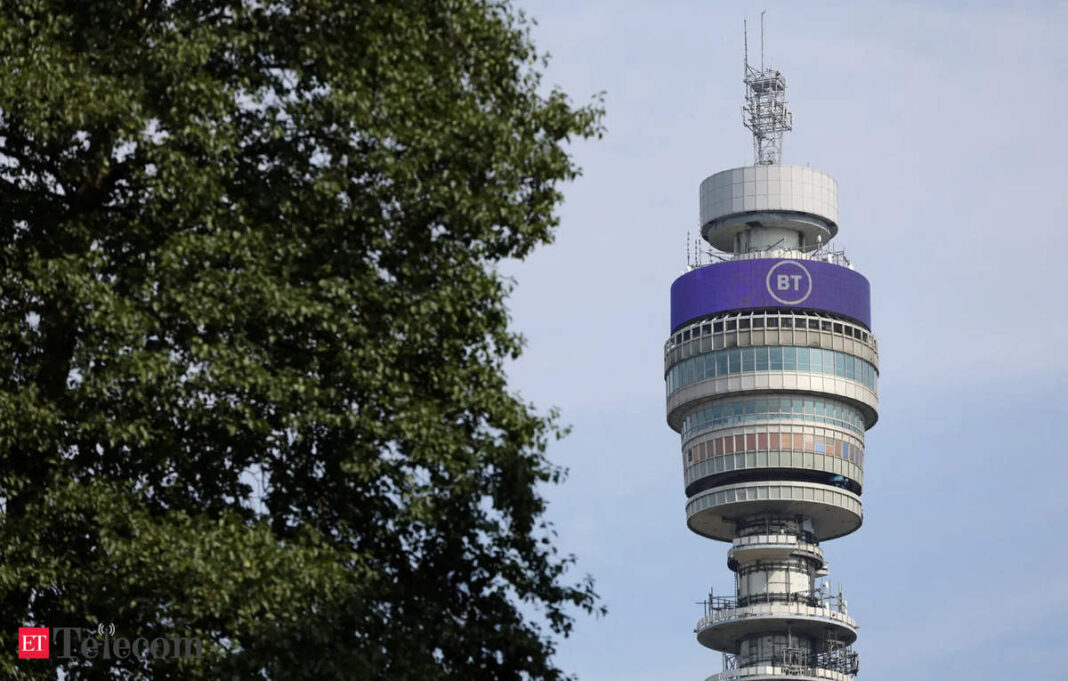In Short:
British Telecom (BT) aims to expand its B2B services, focusing on cybersecurity and AI. With 14,000 employees in India, BT plans to hire 1,000 more by 2024. The company is modernizing its operations, significantly reducing legacy applications. AI’s role is seen as enhancing productivity rather than just job cuts. BT’s cybersecurity services are rapidly growing, reflecting demand from both B2B and consumer markets.
NEW DELHI: British Telecom (BT) is strategically leveraging its cybersecurity portfolio to enhance its business-to-business (B2B) operations in an era increasingly characterized by artificial intelligence (AI) and pervasive threats across industries. In an interview with ETTelecom’s Ashutosh Kumar, Harmeen Mehta, Chief Innovation and Digital Officer at BT, emphasized the significance of the company’s cybersecurity initiatives, highlighting its substantial security operations centre (SOC) located in Gurugram. She noted that the Indian team has played a pivotal role in the development of BT’s AI-driven Eagle-i security platform.
BT’s Presence in India
Harmeen Mehta discussed the size and scope of BT’s operations in India, stating that the company employs approximately 14,000 individuals, with a significant portion responsible for global managed service operations. Notably, the Digital unit in India has seen remarkable growth, nearly doubling its workforce in the past three years, with aspirations to continue expanding.
Mehta confirmed plans to recruit an additional 1,000 employees by the end of 2024, with 600 of these new hires set to join the Digital unit.
Contribution to Digital Strategy
BT’s operations and back-office functions are significantly managed from India. The country plays an essential role in various aspects, including fiber planning for the UK market and network management. Approximately 40% of BT’s technology talent is based in India, engaging in global projects. The company aims to streamline its applications from 2,500 to fewer than 500, an initiative wherein the Indian teams are vital contributors.
Mehta emphasized that India is viewed as a critical hub for BT’s digital growth, with elements of the overall digital strategy implemented from this location.
Impact of Job Cuts on India
Regarding BT’s announcement last year to reduce its workforce by up to 55,000 positions, Mehta noted that it would affect various company segments; however, the specific impact on India has not been assessed yet.
AI’s Impact on the Workforce
When addressing the influence of AI on the telecommunications workforce, Mehta acknowledged its dual role: enhancing productivity and alleviating mundane tasks, while also providing opportunities for employees to upscale their skills. She highlighted that AI’s integration into business processes will evolve the workforce mix and talent dynamics.
Mehta mentioned an example from one of BT’s call centers in Belfast, where agents with technology backgrounds were transitioned into developer roles utilizing low code, AI-driven platforms.
Challenges in Monetizing 5G
Mehta acknowledged that monetizing 5G remains a global challenge. BT is actively exploring diverse use cases for 5G relevant to both consumers and businesses. She believes that AI can facilitate the identification of new applications, particularly within sectors such as ports, training facilities, and manufacturing.
Private Networks and Connectivity
Concerning private 5G networks, Mehta explained that many enterprises seek connectivity without necessarily developing entirely privatized systems. It is crucial for large corporations to have reliable and secure connections with high data volumes.
Transition to Cybersecurity and Advanced Services
In light of the evolving landscape, Mehta pointed out that cybersecurity has emerged as one of BT’s fastest-growing segments within its B2B portfolio. The company intends to deepen its focus on combining security with connectivity. The Gurugram facility houses one of BT’s global SOCs, which operates for numerous significant clients worldwide.
Mehta also highlighted the development of the Eagle-i product, partially constructed by teams in India, noting that the prominence of cybersecurity will only increase in an AI-driven environment.
Growth in B2B and B2C Segments
Mehta delineated the differences between the B2B and B2C markets, asserting that while B2B presents its challenges, it nonetheless accounts for a substantial portion of BT’s revenue. In contrast, the consumer market is expanding into areas such as consumer electronics and adjacent services, including gaming.
On the B2B front, Mehta indicated that despite encountering hurdles, recent offerings such as global fabric and security are driving positive growth.




